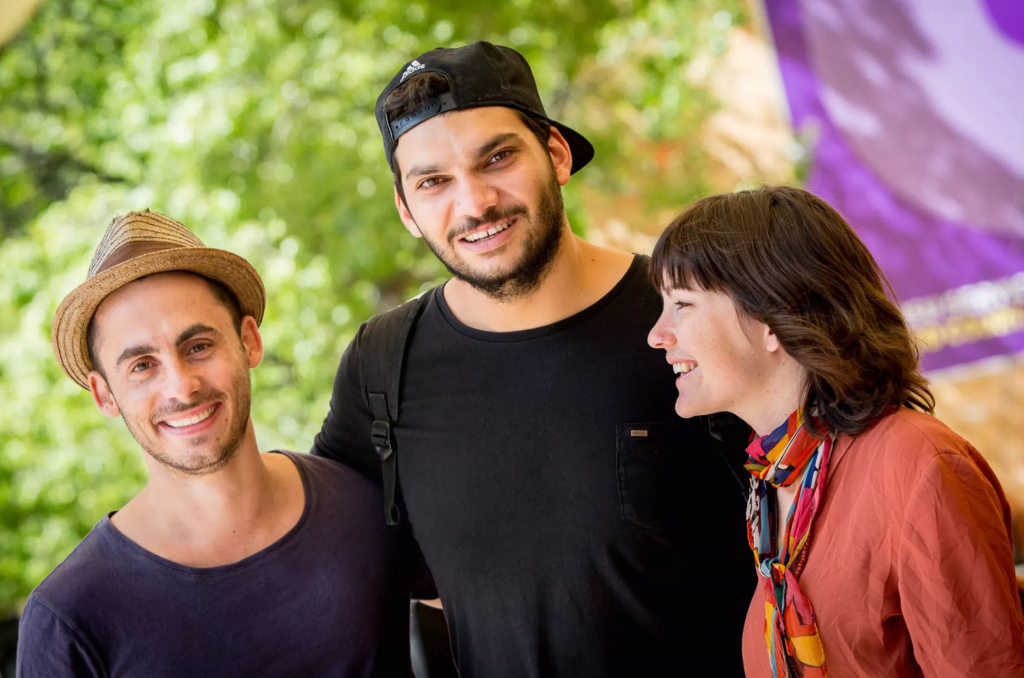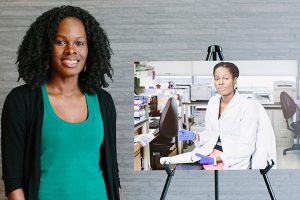University of Melbourne to Lead 20-Year Leadership Program to Tackle Social Inequality
Resource type: News
University of Melbourne | [ View Original Source (opens in new window) ]

A new fellowship dedicated to supporting mid-career leaders in Indigenous and non-Indigenous communities over the next two decades will be launched by Prime Minister Malcolm Turnbull in Canberra this morning.
The Atlantic Fellows for Social Equity program, led by the University of Melbourne, alongside national and international partners, aims to tackle the broader issues of social inequality and how parity can be achieved for all people, regardless of cultural background, race, gender, health or financial status.
The Fellowships will build the capacity and enhance the capability of a new generation of leaders committed to advancing a fairer, healthier, more resilient and inclusive society in Australia, New Zealand and the Pacific.

Starting in 2017, up to 25 Fellowships will be awarded annually for the next twenty years, developing a total of up to 500 social change agents, influential leaders and innovative thinkers over the course of the Fellowships.
The Fellowships will be established by a $50 million USD grant from The Atlantic Philanthropies, while up to $40 million AUD in Commonwealth support will be provided over the life of the program.
The estimated program value over twenty years will total more than $160 million AUD, with additional financial contributions from the University of Melbourne, Queensland University of Technology and the University of Auckland.
The program will also receive significant in-kind support from a range of partner organisations including the The Brotherhood of St Laurence, the Business Council of Australia and Jawun, who will bring a wealth of experience and expertise to the program.
Each Atlantic Fellow will complete an intensive curriculum focused on the development of forward-thinking leadership skills and social action strategies. The program will continue to evolve and adapt through input from Indigenous and non-Indigenous stakeholders throughout its duration.
Australia faces unique challenges in trying to achieve social equity across all levels of society, but especially in its Indigenous communities. Indigenous Australians are the most disadvantaged and marginalized group nationally, with nearly 40 per cent reporting that they experience some level of social exclusion, almost double the rate of non-Indigenous Australians.
Indigenous Australians are also worse off than non-Indigenous Australians on almost all economic, social and health measures, including life expectancy, prison population, homelessness and obesity. Income inequality is higher in Australia than the OECD average, with those in the top 20 per cent income group making roughly five times more than those in the bottom 20 per cent.
Atlantic Fellows will be selected from a diverse range of backgrounds, such as business, academia, public service and industry, and chosen on the basis of their experience, impact and established commitment to social equity ideals, especially those focused on Indigenous communities.
A Program Board will oversee the program and participants, and will be chaired by the Co-Chair of Reconciliation Australia and Chancellor of the University of Canberra, Professor Tom Calma. The program will be open to Australian and New Zealand applicants and eventually expand to include innovative leaders and change makers from the Pacific Islands.
“The time has come for a new approach to socially-conscious leadership, especially if we wish to adequately empower the next-generation of leaders to have an inclusive approach in building stronger communities,” said Professor Calma.
“These Fellowships provide this generation with a truly unique opportunity to build capacity in this area, and realise positive change accordingly.”
Professor Glyn Davis, University of Melbourne’s Vice-Chancellor, said the Atlantic Fellows arrive at an important time, and will help build capability in a new generation of leaders. “Our leadership styles should reflect the reality of the current world,” he said.
“The approach that the Fellowships will seek to embed in the next generation of social-change leaders will build on indigenous leadership paradigms that are ideally suited to promoting collaboration; between other Fellows, amongst those in the wider Atlantic Philanthropies network and beyond. In an increasingly interconnected world, such collaboration is not just a happy by-product of this leadership program, it is essential.”
“These fellowships will provide mid-career, social change leaders with a significant platform to accelerate their personal and professional development. In doing so, we believe we can assist them with the skills and networks they require to enable both practices and policies that will improve social equity for disadvantaged communities across the Australia-Pacific region,” concluded Professor Davis.
“Atlantic and its founding chairman, Chuck Feeney, have long invested in the people and future of Australia by supporting brilliant scientists, medical research and higher education institutions that have contributed to building a world-class knowledge economy,” said President and CEO of The Atlantic Philanthropies, Christopher G. Oechsli.
“It is now our distinct privilege to support innovative, dedicated leaders and organisations that will commit themselves to build opportunities for those who have been historically and systematically denied them, and to create a fairer, more inclusive and just future for all in the region and beyond. This initiative represents one of the foundation’s final big bets, and we’re honored to welcome Australia into our interconnected set of Atlantic Fellows programs.”
Further quotes attributable
Professor Stuart McCutcheon, Vice-Chancellor University of Auckland
“We are delighted to be a partner in the Atlantic Fellows for Social Equity program. As the largest provider of degree education to Māori (indigenous) and Pacific people in New Zealand, and a major centre for Māori and Pacific research, the University of Auckland has a strong commitment to leadership development in those communities.”
“We welcome the opportunity to partner with the University of Melbourne in bringing our expertise to bear on the challenge of creating greater social equity across Australasia and the Pacific. Given the global reach of this Fellowship and its link to other centres with a strong commitment to equity, this hub will be crucial to informing how these contribute to stronger communities in the future.”
Professor Shelley Mallet, General Manager Research and Policy Centre, Brotherhood of St Laurence
“At the Brotherhood of St Laurence we work on a daily basis with people and communities living with disadvantage and social exclusion. The Atlantic Fellows for Social Equity program provides a powerful means to bring about change through developing the next generation of leaders from some of these communities.”
“The experience of poverty is not only inadequate income but involves exclusion from many aspects of social, civic and economic life. We know through the Social Exclusion Monitor we developed with the Melbourne Institute of Applied Economic and Social Research that social exclusion can endure over time.”
“We are excited to be a partner in the Atlantic Fellows for Social Equity program, to which we bring our experience in programs and research that help disadvantaged individuals, families and communities to break the cycle of poverty.”
Karyn Baylis, Chief Executive, Jawun
“Jawun is delighted to collaborate with such an esteemed group of partners to support this initiative. Enabling and then leveraging the understanding of these complex challenges is something Jawun strives to be a success at. Working with such a strong cohort of participants will not only enhance Jawun’s community partnership model but offer a terrific and wide ranging experiential component to the fellowship program.”
“The ripple effect of this group and the Jawun involvement in the broader program will no doubt be another cog in the advancement of reconciliation in this country, one step at a time.”
Jennifer Westacott, Chief Executive, Business Council of Australia
“The Business Council is proud to be a partner in this significant project to invest in seriously moving the dial on Indigenous social equity. We’re involved because our members believe business has an important role to play in creating the conditions in which Aboriginal and Torres Strait Islander people can prosper and thrive. No single sector can address the issues alone, and this program recognises the importance of creating leaders who can collaborate across sectors to make a real impact on Indigenous outcomes.”
More information
The Atlantic Philanthropies are dedicated to advancing opportunity, equity and human dignity. Established in 1982, when Chuck Feeney quietly committed virtually all of his assets to the foundation, Atlantic has since made grants approaching $8 billion. In keeping with Mr. Feeney’s “Giving While Living,” big-bet philosophy, Atlantic invests in systemic change to accelerate improvements in the lives of disadvantaged and vulnerable people. The foundation, which has operated in Australia, Bermuda, Cuba, Northern Ireland, the Republic of Ireland, South Africa, the United States and Viet Nam, will complete all grant making in 2016 and conclude operations shortly afterward.
The gift from The Atlantic Philanthropies is part of Believe – the Campaign for the University of Melbourne. To change the lives of future generations, Melbourne is aiming to raise $1 billion in philanthropic investment and engaging 100,000 alumni in the life of the University.
In the Media
- Duty free shopping billionaire Chuck Feeney, a $10 billion philanthropist, makes his last donation in Australia, Australian Financial Review
- Biggest donation yet from Chuck Feeney’s Atlantic Philanthropies will fuel ‘systemic change’ in indigenous affairs, The Australian
- Fellowship Builds New Generation of Leaders, Pro Bono Australia